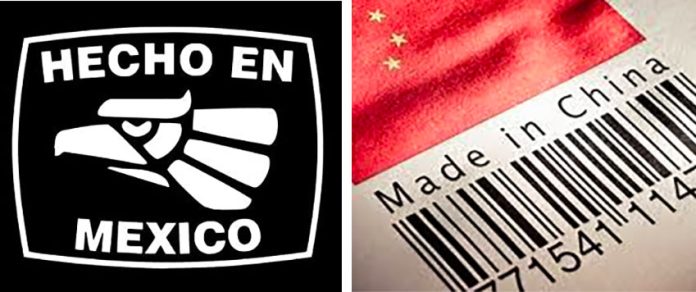This morning my 13-year-old, looking at something on Amazon, said, “Don’t buy that, it’s from China. They gave us the virus.”
I could have given her a lesson on free trade and comparative advantage. Instead my mind turned to a question that’s been bothering me for years — “Why not buy it from Mexico?”
- Mexico is right next door to the world’s biggest and richest market. China is thousands of miles away.
- Mexico’s minimum wage is about US $6 a day. In China it’s on average over $12 a day.
- China is dependent on expensive imported energy. Mexico exports energy.
So why is my classic “kitchen drawer from hell” filled with Made in China utensils and why is my closet bulging with Chinese-made clothing and shoes? And nothing from Mexico?
In recent years I’ve dined with a storied Mexican entrepreneur in Puebla, flown with an energetic Polish entrepreneur who was giving up and selling out and heading home to Warsaw from Yucatán, and worked with the sugar/ethanol industry in Guatemala, where the same issue is pertinent.
Here are their real-world answers to the “Why not” question.
- The Mexican entrepreneur, not a man of many words: “Inefficiency.”
- The Polish entrepreneur, wealthy from furniture exports from relatively treeless Poland to Sweden’s IKEA, only slightly more wordily: “The workers don’t show up.”
- The Guatemalan sugar entrepreneur, responding in much greater detail to a question as to why he kept so many mechanical harvesters on hand when his cane was harvested by hand, said, “Mother’s Day, My Birthday, My Saint’s Day, My Village’s Patron Saint’s Day, Army Day, Christmas Week, Easter Week, Various Anniversaries of Various Revolutions, labor law-mandated two weeks’ vacation a year” and “sugar cane doesn’t reach an ideal harvest date according to a calendar. We have to be able to harvest it exactly when it’s brix-ready [a key measure of sweetness].” Then, a little more succinctly, he added, “Insurance.”
I don’t have the answer, but long before the latter real-world encounters the issue came to my fore in an academic setting. I took a grad school course in the economies of developing countries, and about the only thing I remember was called the “Backward Bending Supply Curve for Labor,” a name only an economist could love.
First documented in post-World War II West Africa, it described in economist-ese the situation on a West African coconut plantation where it was well documented that when workers had picked the number of coconuts on a given day to be paid “enough” for their needs, they simply put the machetes away and went home. Today there is no West African coconut industry to speak of.
I’m left unsatisfied at posing a question for which I have no answer. But surely it is the question for both the present and the future. On paper Mexican entrepreneurs should be lining up to replace Chinese exports to the vast U.S. market.
They are not.
Why not?
Carlisle Johnson writes from his home in Guatemala.
